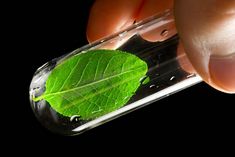New division
New structure of the Department of Chemistry The "Division of Chemistry of Renewables" (Chemie nachwachsender Rohstoffe, H774) is now an autonomous division within the Department of Chemistry. DIVISION OF CHEMISTRY OF RENEWABLES (H774) CHAIR OF WOOD, PULP AND FIBER CHEMISTRY History and presence. In 1998, the first Austrian Christian-Doppler lab in the field of chemical sciences was established at BOKU university with the working topic "pulp reactivity". In 2004, BOKU made the strategic decision to engage further in the chemistry of renewable resources, and in 2005 the chair of wood, pulp and fiber chemistry ("WPF") was established as the second professorship within the Division of Organic Chemistry. Since then, this research unit has developed into the leading center of research on chemistry of renewable resources in Austria, and has become a major focal point of European and international activities in this field. The Christian-Doppler Lab “Advanced Cellulose Chemistry and Analytics” ( http://www.chemie.boku.ac.at/cdl.html?L=1 ) and the K-project FLIPPR ("Future lignin and pulp processing research", www.flippr.at ) have been playing a key roles in the development of the research unit. In 2013, the Division of Chemistry of Renewables ("Chemie Nawaros") became a separate Division within the Department of Chemistry. It is divided into six separate work groups, which despite their individual character are scientifically strongly interacting and topically closely interrelated: Dr. Antje Potthast (Biopolymer analytics), Dr. Falk Liebner (Biomaterial chemistry), Dr. Ute Henniges (Applied cellulose conservation science), Dr. Stefan Böhmdorfer (Biorefinery analytics), Dr. Thomas Rosenau (Wood, pulp and fiber chemistry). General activities and outreach. Among 15 other European academic institutes, the Division is member of the European Polysaccharide Network of Excellence (EPNOE). Within the Global Center of Excellence in Fiber Science (gCoEFS), which comprises 3 European and 9 other international research units, it acts as the academic partner for "cellulose fiber science". Group leaders of the division are active in the advisory board of more than ten scientific journals, among them several that are highly relevant for the pertinent scientific field: Holzforschung (associate editor), Cellulose, Wood Science and Technology, Journal of Renewable Materials, The Open Natural Products Journal, Restaurator. They also act as members of permanent scientific and executive committees in the conference series most relevant to ChemNawaros: European Workshop of Lignocellulosics and Pulp (EWLP, biannually), International Cellulose Conference (ICC, every 5 years), European-Japanese Workshop on Functional Polysaccharides, and the Symposium of Wood, Fiber and Pulping Chemistry (ISWFPC, biannually), the next ISWFPC conference being held for the first time in Austria in September 2015, hosted by BOKU. The division members are very active with regard to scientific community services, performing more than 120 scientific reviews as well as evaluations of 8 external PhD theses on annual average.
The staff of the division is involved in teaching organic chemistry in fundamental courses on all levels of education. Chemistry of renewables and green chemistry principles find particular consideration and are offered in special lectures. The division was centrally involved in the development of the "Nawaro" international master course. Supervision activities concentrate on the graduate and post-graduate level: in 2013, 20 PhD students are supervised, apart from 5 postdoctoral scientists. The Division is integrated into a network of active scientific cooperation worldwide, focal points being Japan, Scandinavia, and the USA. Very good links have also been established to major companies in the field of pulp and paper science as well as in the chemical industries sector. The research is well balanced between fundamental science and applied studies, reflected in cooperation with academic and research institutions and industrial research partners as well. General research topics. The strengths of the whole division appears to be its good integration into the academic and industrial scientific community, and first of all its broad expertise - not just in one relatively narrow topic, but in different areas which are all grouped around chemistry of renewable resources: ranging from specialized synthetic chemistry (synthesis of cellulose and lignin model compounds, isotopic labelling, vitamin E and general antioxidant chemistry), pulp and paper (bleaching and pulping chemistry, fiber modification), paper chemistry and conservation (aging mechanisms, evaluation of treatments, degradation status), cellulosic textile chemistry, advanced analytics of biopolymers and their degradation and modification products, biorefinery, and novel biomaterials. This broad expertise is also reflected in the number of different partner companies from quite different work areas: e.g. pulp and paper, textile, chemical industry, pharmaceutical industry, rubber industry, building and construction companies. Staff of the Division of Chemistry of Renewables, June 2013

